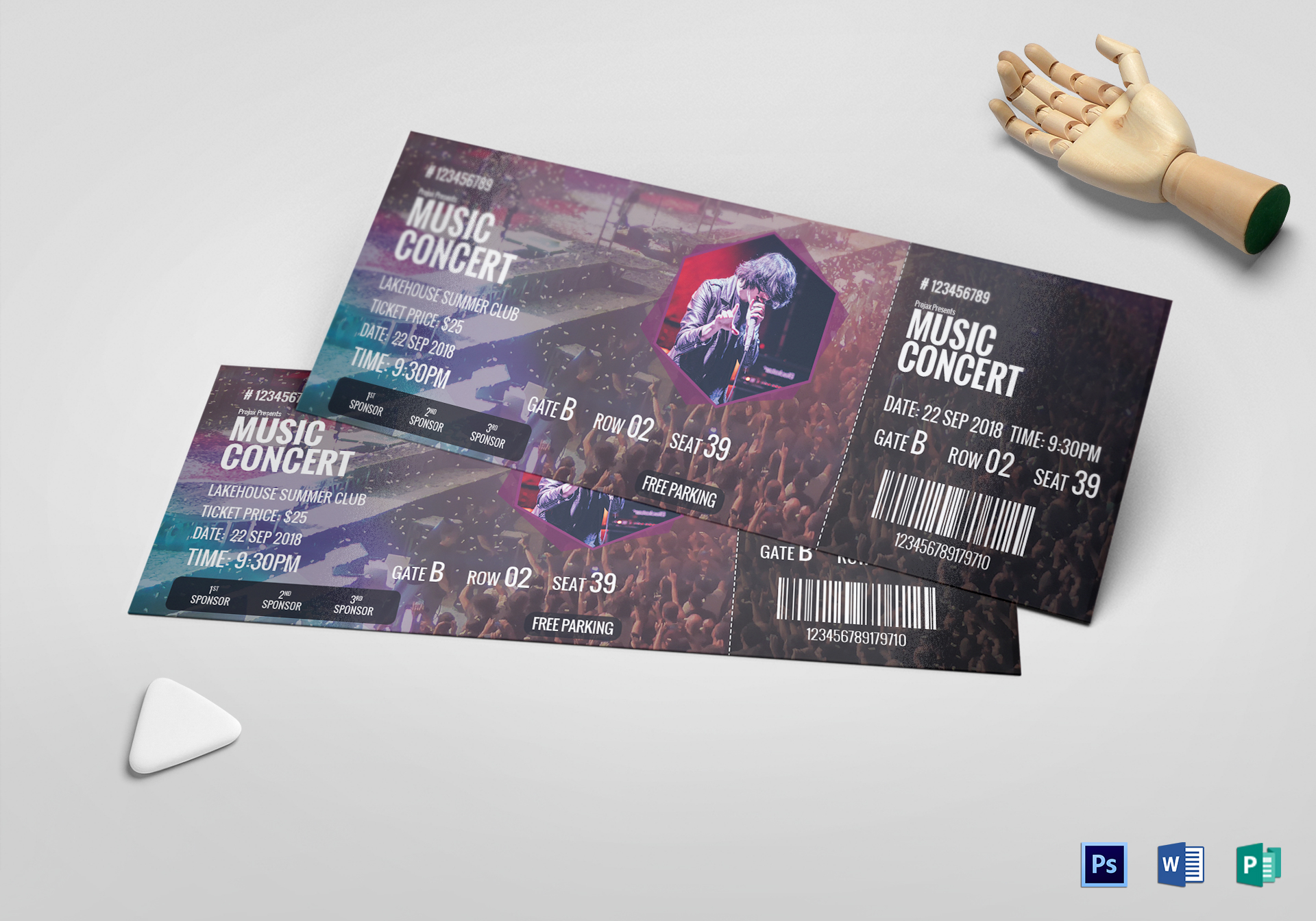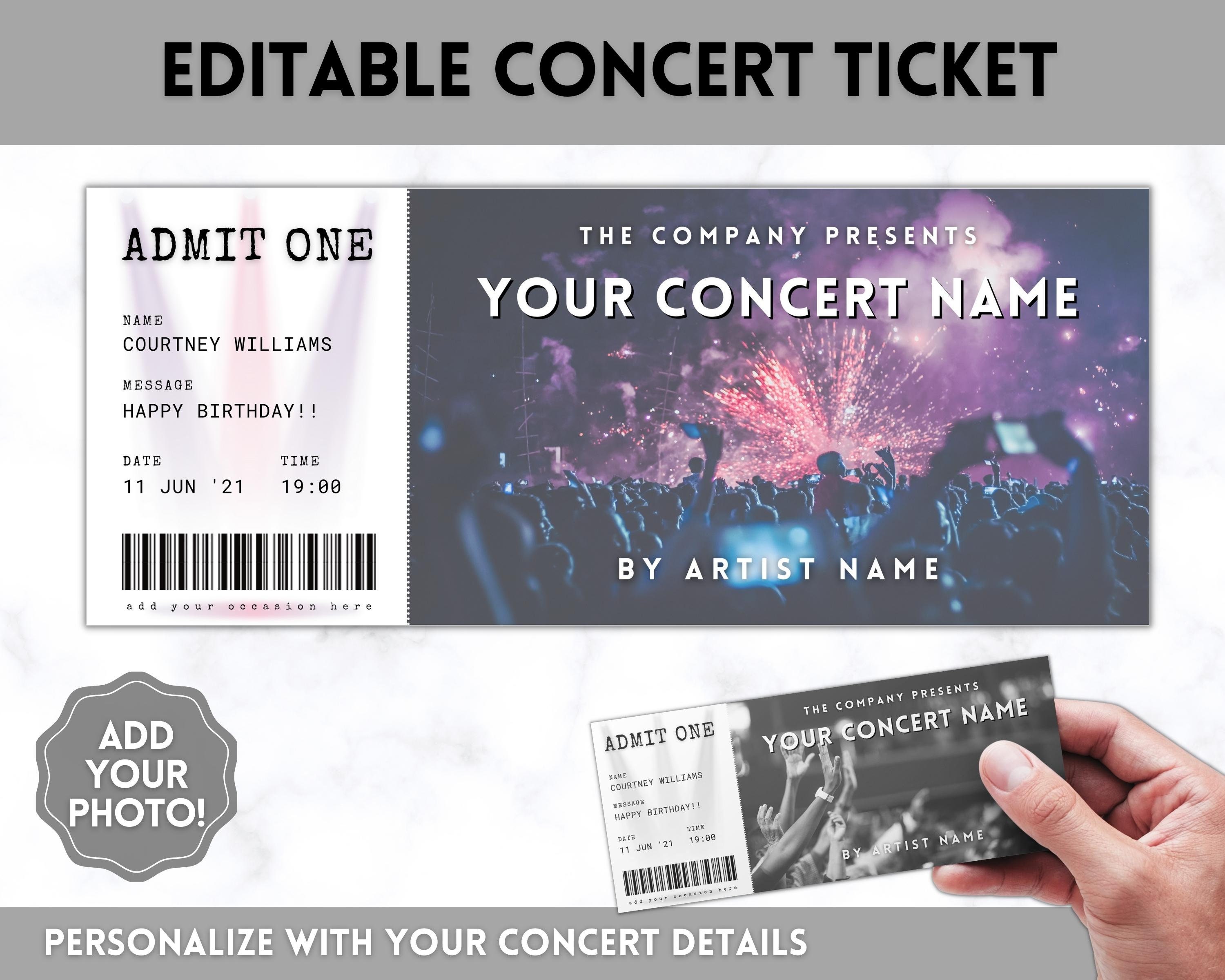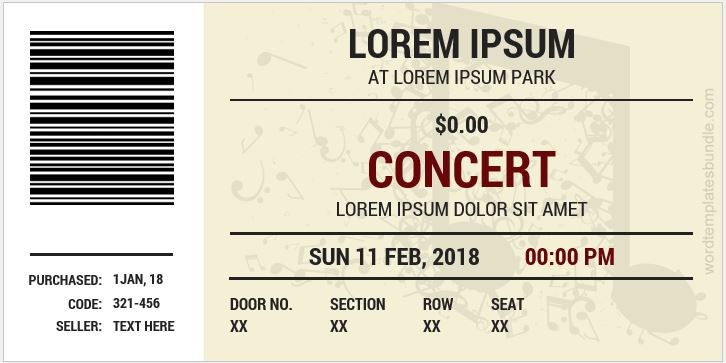What Happens Behind the Scenes of Concert Ticket Sales
The process of buying concert tickets may seem straightforward, but have you ever wondered how they become available to the public in the first place? To understand how concert tickets work, it’s essential to know the key stakeholders involved in their sales. These include ticketing websites, promoters, venues, and artists, all of whom play a crucial role in making tickets available to fans.
Ticketing websites, such as Ticketmaster or Live Nation, serve as the primary platform for buying and selling concert tickets. They work closely with promoters, who are responsible for organizing the event, to determine the ticket prices, availability, and seating arrangements. Venues, on the other hand, provide the physical space for the concert to take place, and artists, of course, are the main attraction.
When a concert is announced, the promoter will typically allocate a certain number of tickets to the ticketing website, which will then make them available to the public. The ticketing website will also handle the sales process, including managing ticket inventory, processing payments, and providing customer support. Meanwhile, the venue will prepare for the event by setting up the stage, sound and lighting systems, and ensuring that the necessary safety measures are in place.
As the concert approaches, the ticketing website will continue to manage ticket sales, including handling any last-minute changes or cancellations. On the day of the event, the venue will be responsible for ensuring that everything runs smoothly, from ticket scanning and entry to crowd control and safety.
Understanding the behind-the-scenes process of concert ticket sales can help fans appreciate the complexity and effort that goes into making these events possible. By knowing how concert tickets work, fans can also make more informed decisions when buying tickets, such as choosing the right ticketing website or being aware of any potential fees or restrictions.
Understanding Ticket Pricing and Availability
When it comes to buying concert tickets, one of the most important factors to consider is the price. But have you ever wondered how ticket prices are determined? The answer lies in the complex interplay between demand, supply, and ticketing fees. To understand how concert tickets work, it’s essential to grasp these key factors that influence ticket pricing and availability.
Demand is a significant driver of ticket prices. When a popular artist or band announces a concert, demand for tickets tends to be high. This increased demand can drive up ticket prices, especially if the venue is small or the concert is expected to sell out quickly. On the other hand, if demand is low, ticket prices may be lower to encourage sales.
Supply is another critical factor in determining ticket prices. The number of tickets available for a concert can impact prices, with fewer tickets available leading to higher prices. Ticketing websites and promoters use various strategies to manage supply, including ticket holds and ticketing algorithms. Ticket holds, for example, allow promoters to reserve a certain number of tickets for special guests or VIPs, while ticketing algorithms help to optimize ticket pricing and availability in real-time.
Ticketing fees are another important consideration when buying concert tickets. These fees can include service fees, convenience fees, and delivery fees, and can add significant costs to the ticket price. Understanding how these fees are calculated and how to minimize them can help fans save money and make more informed purchasing decisions.
By understanding the factors that influence ticket pricing and availability, fans can make more informed decisions when buying concert tickets. Whether you’re looking to score tickets to a sold-out show or simply want to understand how concert tickets work, knowing the ins and outs of ticket pricing and availability can help you navigate the complex world of concert ticketing.
How to Buy Concert Tickets: A Step-by-Step Guide
Buying concert tickets can be a daunting task, especially for those who are new to the process. However, with a little guidance, you can navigate the ticket-buying process with ease. In this section, we’ll walk you through a step-by-step guide on how to buy concert tickets online, including tips on creating an account, selecting seats, and completing the checkout process.
Step 1: Create an Account
Before you can start buying concert tickets, you’ll need to create an account with a ticketing website. Most ticketing websites, such as Ticketmaster or Live Nation, offer a simple sign-up process that requires basic information like your name, email address, and password. Make sure to choose a strong password and keep your account information secure.
Step 2: Search for Concert Tickets
Once you’ve created an account, you can start searching for concert tickets. Use the ticketing website’s search function to find tickets for your desired concert. You can search by artist, venue, or date to find the tickets you’re looking for.
Step 3: Select Your Seats
After you’ve found the concert tickets you’re looking for, it’s time to select your seats. Most ticketing websites offer interactive seating charts that allow you to choose your seats based on the venue’s layout. Make sure to choose seats that fit your budget and offer a good view of the stage.
Step 4: Complete the Checkout Process
Once you’ve selected your seats, it’s time to complete the checkout process. Review your ticket selection and make sure everything is correct. Enter your payment information and complete the purchase. Make sure to read and agree to the ticketing website’s terms and conditions before finalizing your purchase.
By following these simple steps, you can buy concert tickets online with ease. Remember to always purchase tickets from authorized ticketing websites to avoid scams and ensure a smooth entry process. With a little practice, you’ll be a pro at buying concert tickets in no time.
The Role of Ticketing Websites and Resale Markets
When it comes to buying concert tickets, there are several types of ticketing websites to choose from. Understanding the differences between primary and secondary markets can help you make informed decisions and avoid potential pitfalls. In this section, we’ll explore the role of ticketing websites and resale markets in the concert ticketing industry.
Primary ticketing websites, such as Ticketmaster or Live Nation, are authorized by the venue or promoter to sell tickets directly to the public. These websites typically offer a wide selection of tickets, including VIP packages and premium seats. Primary ticketing websites often have a direct relationship with the venue or promoter, which can provide an added layer of security and authenticity.
Secondary ticketing websites, also known as resale markets, allow individuals to buy and sell tickets among themselves. These websites, such as StubHub or Vivid Seats, can offer a wider selection of tickets, including hard-to-find or sold-out events. However, secondary ticketing websites often come with a higher level of risk, as buyers may be purchasing from unauthorized sellers or counterfeit tickets.
Resale markets can be beneficial for fans who are looking for specific tickets or want to buy tickets at a lower price. However, it’s essential to be aware of the potential risks and take necessary precautions to avoid scams. When using resale markets, make sure to research the seller, read reviews, and understand the website’s policies and fees.
Some ticketing websites, such as Ticketmaster, offer a resale platform that allows fans to buy and sell tickets in a secure and authorized environment. These platforms often provide additional benefits, such as ticket verification and customer support.
By understanding the role of ticketing websites and resale markets, fans can make informed decisions when buying concert tickets. Whether you’re looking for a primary ticketing website or a resale market, it’s essential to prioritize security, authenticity, and transparency to ensure a smooth and enjoyable concert experience.
Concert Ticketing Fees: What You Need to Know
When buying concert tickets, it’s essential to understand the various fees associated with the purchase. These fees can add up quickly, increasing the overall cost of the ticket. To make informed decisions, it’s crucial to know how these fees are calculated and how to minimize them.
Service fees are one of the most common types of fees associated with concert ticket purchases. These fees are typically charged by the ticketing website or vendor and can range from 10% to 20% of the ticket price. Service fees cover the costs of maintaining the ticketing website, processing transactions, and providing customer support.
Convenience fees are another type of fee that may be charged when buying concert tickets. These fees are usually charged for the convenience of buying tickets online or over the phone. Convenience fees can range from $2 to $10 per ticket and are often waived when tickets are purchased in person at the venue box office.
Delivery fees are also common when buying concert tickets. These fees cover the cost of shipping tickets to the buyer and can range from $2 to $15 per order. Some ticketing websites may offer free delivery or discounted rates for orders over a certain amount.
Other fees that may be associated with concert ticket purchases include order processing fees, facility fees, and ticket insurance fees. Order processing fees cover the cost of processing the transaction, while facility fees are charged by the venue to maintain and upgrade their facilities. Ticket insurance fees provide protection against ticket loss, theft, or cancellation.
To minimize concert ticketing fees, consider the following tips:
- Buy tickets directly from the venue box office to avoid convenience fees.
- Look for ticketing websites that offer free delivery or discounted rates.
- Consider purchasing tickets during off-peak hours or using a ticketing website’s mobile app to reduce service fees.
- Be aware of ticket insurance fees and only purchase insurance if necessary.
By understanding the various fees associated with concert ticket purchases, buyers can make informed decisions and minimize their costs. Remember, when buying concert tickets, it’s essential to factor in these fees to avoid any surprises at checkout.
Ticket Authentication and Security Measures
Ticket authentication and security measures are crucial components of the concert ticketing process. These measures help prevent ticket fraud, ensure a smooth entry process, and provide a secure experience for concertgoers. Understanding how ticket authentication and security measures work can help fans navigate the ticketing process with confidence.
One of the primary methods of ticket authentication is the use of barcodes. Barcodes are unique codes assigned to each ticket, which are scanned at the venue entrance to verify the ticket’s authenticity. Barcodes can be found on physical tickets, as well as on mobile tickets displayed on a smartphone.
QR codes are another form of ticket authentication. QR codes are square codes that contain information about the ticket, such as the event name, date, and seat number. QR codes can be scanned using a smartphone app, providing an additional layer of security and verification.
Ticket verification processes are also an essential part of ticket authentication. Ticket verification involves checking the ticket’s details, such as the event name, date, and seat number, to ensure that the ticket is valid and authentic. Ticket verification can be done manually by venue staff or automatically using specialized software.
In addition to barcodes, QR codes, and ticket verification processes, many venues and ticketing websites use advanced security measures to prevent ticket fraud. These measures include:
- Secure socket layer (SSL) encryption to protect sensitive information, such as credit card numbers and personal data.
- Two-factor authentication to verify the identity of ticket buyers and prevent unauthorized access.
- Regular security audits and testing to identify vulnerabilities and prevent hacking attempts.
By understanding the various ticket authentication and security measures in place, concertgoers can feel confident in the legitimacy of their tickets and enjoy a secure and enjoyable concert experience. When buying concert tickets, it’s essential to look for ticketing websites and vendors that prioritize security and authentication, such as those that use SSL encryption and two-factor authentication.
Furthermore, fans can take steps to protect themselves from ticket fraud by being cautious when buying tickets from unauthorized resale sites or individuals. It’s essential to only purchase tickets from authorized ticket sellers and to verify the ticket’s authenticity before making a purchase.
In conclusion, ticket authentication and security measures play a vital role in ensuring a secure and enjoyable concert experience. By understanding these measures and taking steps to protect themselves, concertgoers can enjoy their favorite events with confidence.
Common Concert Ticketing Scams and How to Avoid Them
Concert ticketing scams are a growing concern for fans and ticket buyers. Scammers use various tactics to deceive and steal from unsuspecting buyers, resulting in financial losses and a ruined concert experience. To avoid falling victim to these scams, it’s essential to be aware of the common types of concert ticketing scams and know how to identify and avoid them.
Phishing scams are one of the most common types of concert ticketing scams. Scammers create fake websites or emails that appear to be from authorized ticket sellers, but are actually designed to steal sensitive information, such as credit card numbers and passwords. To avoid phishing scams, be cautious when clicking on links or providing personal information online.
Counterfeit tickets are another type of scam that can leave fans with worthless pieces of paper. Scammers create fake tickets that appear to be real, but are actually invalid. To avoid buying counterfeit tickets, only purchase from authorized ticket sellers, and verify the ticket’s authenticity before making a purchase.
Unauthorized resale sites are also a common scam. These sites appear to be legitimate resale markets, but are actually operated by scammers who sell fake or invalid tickets. To avoid using unauthorized resale sites, only use reputable resale markets, and be wary of sites that offer unusually low prices or guarantee tickets that are not available elsewhere.
Other common concert ticketing scams include:
- Scammers posing as authorized ticket sellers on social media or online marketplaces.
- Fake ticket lotteries or contests that promise tickets in exchange for a fee.
- Scammers offering to sell tickets at face value, but requiring payment through a wire transfer or other unsecured method.
To avoid falling victim to these scams, follow these tips:
- Only purchase tickets from authorized ticket sellers, such as the venue box office or official ticketing websites.
- Verify the ticket’s authenticity before making a purchase, and be wary of tickets that are significantly cheaper than face value.
- Use reputable resale markets, and be cautious of sites that offer unusually low prices or guarantee tickets that are not available elsewhere.
- Never provide sensitive information, such as credit card numbers or passwords, to unknown or unverified sources.
By being aware of these common concert ticketing scams and taking steps to avoid them, fans can protect themselves from financial losses and ensure a safe and enjoyable concert experience. Remember, if a deal seems too good to be true, it probably is. Always prioritize caution and verify the authenticity of tickets before making a purchase.
Maximizing Your Concert Experience: Tips and Tricks
Now that you’ve purchased your concert tickets, it’s time to make the most of your experience. From arriving early to knowing the venue layout, here are some tips and tricks to help you maximize your concert experience.
Arriving early is essential to making the most of your concert experience. Plan to arrive at the venue at least 30 minutes before the doors open. This will give you time to find your seat, grab a snack or drink, and get settled before the show starts. Additionally, arriving early will also give you a chance to soak in the pre-concert atmosphere and get excited for the show.
Knowing the venue layout is also crucial to maximizing your concert experience. Take some time to familiarize yourself with the venue’s seating chart, concession stands, and restrooms. This will help you navigate the venue with ease and avoid any confusion or frustration during the show.
Staying safe during the concert is also important. Make sure to keep an eye on your belongings at all times, and be aware of your surroundings. If you’re planning to meet up with friends or family, designate a meeting spot in case you get separated. Additionally, be sure to follow the venue’s rules and regulations, such as no smoking or no flash photography.
Other tips to maximize your concert experience include:
- Charge your phone and bring a portable charger to ensure you have enough battery to take photos and videos throughout the show.
- Bring earplugs to protect your hearing and enjoy the music without discomfort.
- Wear comfortable shoes and clothing to ensure you can dance and move around freely.
- Bring cash and credit cards to purchase merchandise or concessions.
By following these tips and tricks, you’ll be able to maximize your concert experience and make the most of your time at the show. Remember to stay safe, have fun, and enjoy the music!
In addition to these tips, it’s also important to be respectful of the venue, the performers, and your fellow concertgoers. Follow the venue’s rules and regulations, and be mindful of your noise level and behavior during the show. By being a considerate and respectful concertgoer, you’ll help create a positive and enjoyable experience for everyone involved.
Finally, don’t forget to take advantage of the venue’s amenities and services. Many venues offer a range of amenities, such as food and drink options, merchandise booths, and restrooms. Take some time to explore the venue and see what’s available to enhance your concert experience.







